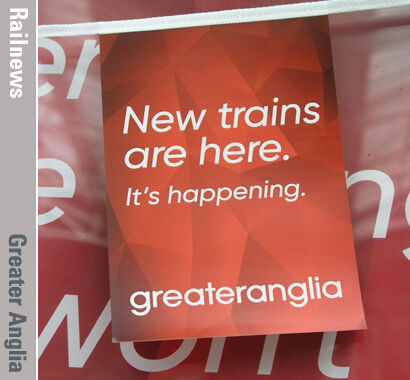Greater Anglia became the latest private sector operator to return to public ownership at 02.00 yesterday morning, as part of the Government’s programme to reunify passenger railways. The first renationalised train was the 04.10 from London Liverpool Street to Stansted Airport.
GA will be followed by West Midlands Trains, which operates as London Northwestern and West Midlands Railway, on 1 February next year. Govia Thameslink Railway (Gatwick Express, Great Northern, Southern and Thameslink) will be nationalised on 31 May, with Chiltern Railways and Great Western Railway also returning to public ownership later in 2026. The remaining operators with Department for Transport contracts will also come under the new ‘directing mind’ Great British Railways in 2027.
The RMT union is welcoming this reform, and has pointed out that outsourcing of jobs had already ended on Greater Anglia while it was still owned by Transport UK Group and Mitsui. The union also said GA had provided a ’blueprint’ for Great British Railways to adopt, and claims that private contractors involved in outsourcing had been making £400 million a year, which ‘drains’ from the railways.
RMT general secretary Eddie Dempsey said: ‘Greater Anglia coming back into public ownership is a big step forward towards creating Great British Railways and to unite track and train under a single publicly owned body, benefiting railway workers and passengers alike.
‘What makes Greater Anglia stand out is that RMT has also secured agreement on a wave of insourcing.
‘At London Liverpool Street, train presentation, gateline and customer service staff are now directly employed.
‘This ends years of exploitation where outsourced workers, many from BME backgrounds, were left on worse pay and worse conditions.
‘We still have work to do on outsourcing within the company but this is a fantastic start.
‘Public ownership needs to be accompanied by insourcing across rail which would cut out profiteering contractors, deliver better value for money and give rail workers the dignity and security of direct employment. Labour must now press on with their public ownership agenda on rail and roll out insourcing across the network through Great British Railways.’
What do you think? Click here to let us know.


